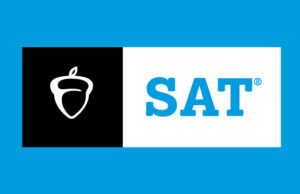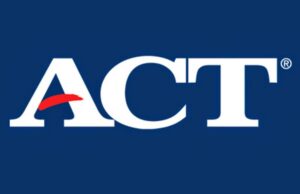College admissions tests give advantages to financially privileged white students
High school is consumed with talk of college admissions tests.
Teachers and counselors continually emphasize the importance of this simple number on the futures of students. The tests are easy to widely administer and generally score, giving colleges and universities an easy gage of potential success at a particular institution or a student’s aptitude for learning new subjects.
Tests like the ACT and SAT are branded as equal-opportunity tests that measure a student’s potential for success in academia, however, research is showing otherwise.
This is shown through research compiled by the National Center for Fair & Open Testing, using data collected from College Board. The conclusion is easy; the richer you are, the more likely you are to get a higher score. Lower scores provide limited opportunities for not only scholarships, but admission itself for lower income students.
According to the research, students in the highest bracket of income from families earning more than $200,000 per year receive the highest scores on the SAT, and the trend continues downward as student’s income decreases.
According to an investigation in the Wall Street Journal in 2014, “The SAT is just another area in American life where economic inequality results in much more than just disparate incomes.”
It can be inferred that students from higher income families are more likely to score higher on these tests due to economic resources, such as better teachers, educated parents with degrees and often times expensive test prep courses that are not financially possible for many students.
Not only do tests like the SAT cater more to higher income students, but the test questions can be biased themselves. Tests are often written and scored by highly educated individuals who have received expensive educations and were exposed class-based knowledge that is not possessed by every student, and these questions that include class-based knowledge have been put on the test itself.
Class-based knowledge in college admissions test includes questions that demand previous knowledge about subjects more likely exposed to students that are members of the upper class. For example, asking a question that relies on background information of skiing or golfing instead of basketball or baseball.
There have also been instances of terms not familiar with native English speakers. The National Center for Fair and Open Testing’s website, FairTest.org, finds, “Idiomatic terms such as ‘straight from the horse’s mouth’ may not be familiar to many test-takers, particularly those whose first language isn’t English, causing them to choose wrong answers.”
“Race, class and gender biases give white, affluent and male test-takers an unfair edge,” FairTest.org said. “Research shows that a fast-paced, multiple-choice format favors males over females. Guessing, a risk males are more likely to take, is rewarded. Since multiple-choice items do not allow for shades of meaning they work against the most typical female thinking style.”
Admissions test are not the only thing catering to a select population of students, but the admissions process itself also faces scrutiny for it’s tendency to bias and place heavy weight on extracurriculars like athletics and the arts, as well as traveling and volunteering, which are activities that are increasingly more common in more affluent students.
Many also believe that test scores’ roles in college admissions do not serve their intended purpose, as they routinely underestimate the performance of female and students of color in college. While women score lower on average than boys, they receive higher grades in college, and students of color show much more consistency in semester grades than white students.
Many colleges and universities have opted to make test scores optional during the admissions process to combat this issue, however, the majority of higher education institutes still require test scores for admission.









You must be logged in to post a comment Login